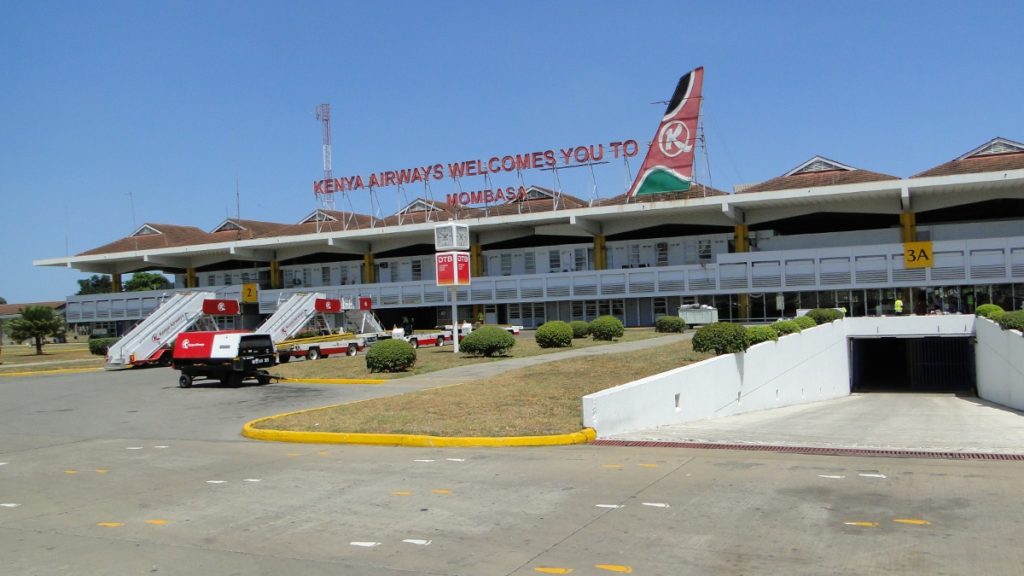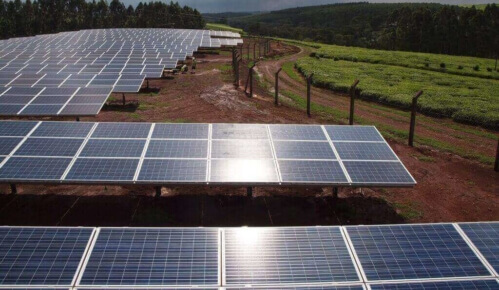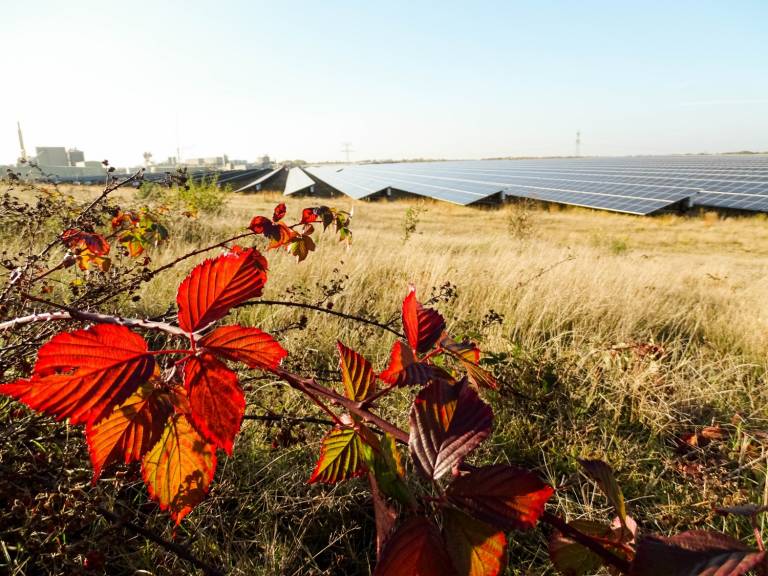Solarcentury to install solar panels at Moi International Airport in Kenya

Solarcentury signs contract with ICAO to install East Africa’s largest airport solar PV plant at Moi International Airport, Mombasa.
International solar company, Solarcentury, will install a ground-mounted 500kW solar photovoltaic (PV) system at Kenya’s Moi International Airport, Mombasa, that will generate 820,000 kWh per year and offset 1,300 tonnes of CO₂ annually. The system will be interconnected to the airport terminal grid, and will prioritise consumption of the solar power over the grid.
Solarcentury will also install airport gate electrification equipment consisting of a mobile electric-powered pre-conditioned air (PCA) unit and an electric 400 Hz Ground Power Unit (GPU) converter and importantly a large battery storage that will provide uninterrupted power to the PCA and GPU whilst in use.
The electricity generated from the solar photovoltaic panels will power the gate equipment which will supply pre-conditioned air and compatible electric power respectively to aircraft docked at an existing passenger boarding bridge (PBB), or parked at a remote stand.
They will eliminate existing carbon emissions from the aircraft on-board auxiliary power unit (APU) powered by jet fuel and from portable ground power units (GPU) fuelled by diesel, by providing pre-conditioned air and compatible electricity that runs on solar energy to aircraft during ground operations.
This marks the first airport to have a solar PV system installed in East Africa. It will pave a critical step in reducing the carbon footprint of aviation in Africa, in support of the environmental objectives of the International Civil Aviation Organisation’s (ICAO) member states.
Once completed, the solar system will enable the international airport to save many thousands of dollars per year on grid consumption for at least 25 years, while reducing aviation carbon emissions.
Guy Lawrence, Director of Solarcentury East Africa commented: “This is an exciting project for Solarcentury as it not only heralds the first International Airport in East Africa to turn to solar PV and battery storage, but it also entails the addition of the PCA and GPU to enable arriving aircraft to offset all their carbon emissions on the ground. We are looking forward to working with ICAO, KCAA and KAA on this pioneering project”.
The project is part of a €6.5m initiative, entitled “Capacity Building for CO2 Mitigation from International Aviation”, implemented by ICAO and funded by the European Union targeting 14 countries – 12 of them from the African region and two from the Caribbean region – to reduce CO2 emissions in the aviation sector.
This initiative aims to support efforts by countries in developing and implementing their action plans on CO2 emissions reduction from international aviation, to establish aviation environmental systems for emissions monitoring at the state level and to implement mitigation measures in selected states.
The solar-at-gate project at Moi International Airport is expected to spur interest among other ICAO’s member states as a successful example on how to tackle the impacts of aviation on the environment, which may be replicated at a larger scale.
Jane Hupe, Deputy Director Environment for ICAO, said: “The implementation of these “solar-at-gate” projects is a good example of how to reduce CO2 emissions and achieve greater sustainability in the aviation sector by using renewable energy technology. There is a great interest from ICAO member states to embark on these projects and the availability of funding from partners will allow ICAO to support their replication at a global scale.”
Jonny Andersen, Managing Director for Kenya Airports Authority noted that “we are excited to be the premier airports authority in the region to have the Solar PV system installed. The expected savings on electricity as well as reduction in carbon emissions will contribute towards the efficient operations of Moi International Airport.”
Work on the site will take 10 months and the systems are expected to be generating solar electricity by 2019. Solarcentury will provide two years of operations and maintenance on the system, and will set up two educational kiosks inside the terminal building to provide the public with real-time information on power output and carbon emission reductions over the life of the system.
Other successful projects undertaken by Solarcentury include a solar carport at Nairobi’s Garden City Mall, the installation of three solar PV plants at the Nairobi-based International Centre of Insect Physiology and Ecology (ICIPE), and setting up of a roof solar system belonging to London Distillers in Athi River, Kenya. This also follows the signing of a contract to build Solar PV at a Unilever Tea Factory in Kericho, earlier this year.
-Ends-
About Solarcentury
Solarcentury is one of the most respected solar companies in the world. Founded in 1998, we have been around since the early days of the industry and have been part of the evolution that has made solar electricity the mainstream energy source that it is today. We have put solar on a greater variety of sites than any other company in the industry, and won multiple awards for leadership and innovation. To date, we have developed and built more than 1 GWp and have a pipeline of 2.4 GWp.
We work end-to-end: developing, structuring finance, building and operating solar projects at commercial and utility scale. We work with partners to bring solar to their customers’ homes. We’re committed to making solar more accessible and attractive. All our customers benefit from our experience in terms of engineering quality, financial stability and sheer breadth of deployment.
Solarcentury is in business for a purpose: to make a meaningful difference in the fight against climate change through the widespread adoption of solar power. As a big believer that solar can help change our world for the better, we contribute 5% of our annual net profits to SolarAid; the charity we founded which aims to eradicate kerosene lamps from Africa.
Our business is global and growing, with European offices in the UK, the Netherlands, Spain, France, and Germany; Latin American offices in Panama, Mexico and Chile; and an African office in Kenya.
About ICAO
A specialised agency of the United Nations, ICAO was created in 1944 to promote the safe and orderly development of international civil aviation throughout the world. It sets standards and regulations necessary for aviation safety, security, efficiency, capacity and environmental protection, amongst many other priorities. The organisation serves as the forum for cooperation in all fields of civil aviation among its 192 member states.


